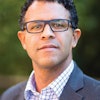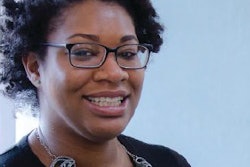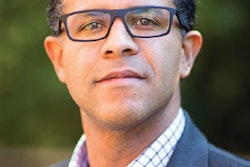During his quest to earn a Ph.D., researcher in the field of neuroscience Antiño R. Allen was called to serve as company commander of an Army Infantry Training Brigade at Fort Benning in Georgia.
That may sound like an interruption to some. But Allen had “absolutely amazing discipline, focus, and dedication in completing his dissertation,” says Dr. G. Troy Smith, an associate professor of biology at Indiana University Bloomington and Allen’s mentor.
“He did not let barriers that would hinder other students keep him from reaching his goal,” Smith says. “During his second tour of duty, he worked long days serving his country, and then would work long hours at night to finish analyzing data and writing his dissertation.
“He is a model for overcoming setbacks and challenges through hard work, and I am very proud of all he has achieved." The hard work paid off.
Today, Allen is an assistant professor of pharmaceutical sciences in the Division of Radiation Health at the University of
Arkansas for Medical Sciences. There, he runs a lab on the fourth floor of the Biomedical Research Building II. He also oversees two graduate students — one who is looking at the long-term cognitive effects of drugs that treat breast cancer and another who is looking at the long-term cognitive effects of drugs used to treat acute lymphocytic leukemia.
Allen says that the two nearly back-to-back military stints better prepared him to run his own laboratory and to train his graduate students to become better at what they do.
“The thing you learn how to do in the Army is run an organization and plan and prepare for whatever issue you’re
going to face,” Allen says, adding that a message he heard constantly in the Army was to improve any organization he
“It’s the same with your lab. You want your organization to be a better, stronger organization,” Allen says. “Those are things I wouldn’t have gotten as a regular graduate student.”




















